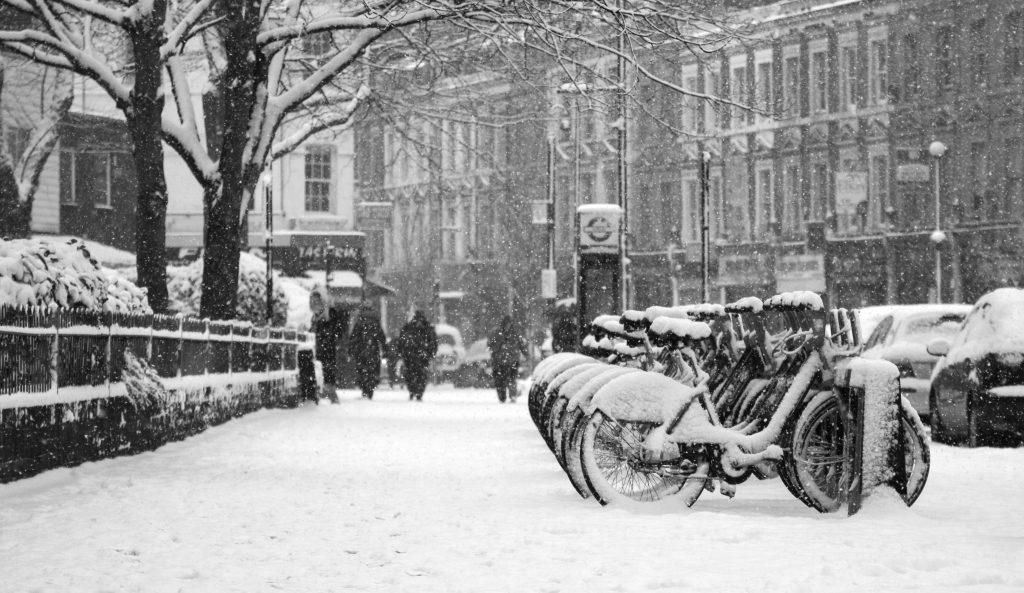As the darker days of winter loom, new research from Better reveals regional differences in how much time people spend outdoors during daylight hours—an important factor in mental well-being and Seasonal Affective Disorder (SAD).
Better’s analysis of UK cities shows that Plymouth residents spend the least amount of time outside in daylight, averaging just 1.17 hours during workdays—a figure well below the national average. In contrast, Southampton tops the list, with residents enjoying 2.75 hours of daylight outdoors on average.
Key findings include:
- Cities at higher risk: Birmingham (1.46 hours), Edinburgh (1.46 hours), and Brighton (1.53 hours) also rank among the lowest for outdoor daylight exposure.
- Potential SAD hotspots: Urban centres like Manchester (1.72 hours) and London (1.86 hours) report reduced outdoor activity.
- A brighter side: Norwich (2.30 hours) and Sheffield (2.12 hours) show promise as cities prioritising outdoor time.
On a national level, people spend 1.81 hours outdoors per day, and 12% said they spend no time outdoors at all, while 10% said they spend just 20 minutes or less outside. The largest group spent 31 minutes to 1 hour outside (22%), and only 5% spent any more than 6 hours outside each day.
With SAD affecting millions across the UK and exposure to natural light being a critical factor in preventing it, these findings underline the importance of lifestyle adjustments as winter approaches. Dr. Babak Ashrafi said:
“Natural light is essential for mood regulation, so try to step outside during daylight hours, even if it’s just for a short walk during lunch. Even on cloudy day, natural light exposure can help boost serotonin levels. If you can’t step out, set up your workspace near a window to get as much indirect natural light as possible while working.Incorporating physical activity is another effective mood booster.
A brisk walk or jog outdoors during your lunch break or commute can help, combining movement and exposure to sunlight. If it’s too dark or unsafe outside, consider indoor alternatives in spaces with large windows to maximise your exposure to natural light.Maintaining healthy sleep and nutrition habits is also key.
Aim for consistent sleep routines, avoiding screens before bed to improve rest. Pair this with a diet rich in mood-boosting foods, like omega-3s, leafy greens, and whole grains, to fuel your body and mind. For additional support, a SAD lamp could also help simulate daylight during darker months.”
|
City |
Number of hours spent outside in the daylight on the average day during the work week. |
|
Plymouth |
1.17 |
|
Edinburgh |
1.46 |
|
Birmingham |
1.46 |
|
Brighton |
1.53 |
|
Bristol |
1.58 |
|
Belfast |
1.62 |
|
Cardiff |
1.63 |
|
Glasgow |
1.69 |
|
Newcastle |
1.69 |
|
Manchester |
1.72 |
|
Leeds |
1.85 |
|
London |
1.86 |
|
Nottingham |
2.04 |
|
Sheffield |
2.12 |
|
Liverpool |
2.21 |
|
Norwich |
2.30 |
|
Southampton |
2.75 |
Additional comments from Georgina Sturmer, a counsellor who supports people through depression, anxiety, and other life difficulties, said:
“Physical activity offers benefits to our physical health, but it can also have a positive impact on our mental wellbeing. When we use our bodies, stretch our muscles, and elevate our heartbeat, we are tuning into what our body needs. This helps us gain perspective and connect with the outside world. Exercise can help reduce depression, which is the major feature of Seasonal Affective Disorder. This is partly due to the immediate mood-lifting powers of exercise. And it’s also partly down to the other features that accompany exercise.
“For example, exercise might make us spend time outside in nature or connecting with other people, which can help to ground us and reduce loneliness or isolation. When we exercise, this can also have a positive impact on self-esteem, which can help combat negative thinking and self-criticism.”
“It can be hard to stay motivated when the weather gets cold and dark. If you’re goal-oriented, then it might help you to have your ‘eyes on the prize’. Try to build exercise into your social life; in the winter, it’s easy for socialising to turn towards nights out and festive binges, so consider suggesting to your friends that you head out for a walk, or a class at the gym, or participate in a challenge event together.”
Featured Photo by Valdemars Magone on Unsplash.



